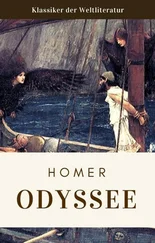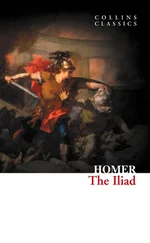Francis Grose - A Burlesque Translation of Homer
Здесь есть возможность читать онлайн «Francis Grose - A Burlesque Translation of Homer» — ознакомительный отрывок электронной книги совершенно бесплатно, а после прочтения отрывка купить полную версию. В некоторых случаях можно слушать аудио, скачать через торрент в формате fb2 и присутствует краткое содержание. Жанр: foreign_antique, foreign_prose, на английском языке. Описание произведения, (предисловие) а так же отзывы посетителей доступны на портале библиотеки ЛибКат.
- Название:A Burlesque Translation of Homer
- Автор:
- Жанр:
- Год:неизвестен
- ISBN:нет данных
- Рейтинг книги:5 / 5. Голосов: 1
-
Избранное:Добавить в избранное
- Отзывы:
-
Ваша оценка:
- 100
- 1
- 2
- 3
- 4
- 5
A Burlesque Translation of Homer: краткое содержание, описание и аннотация
Предлагаем к чтению аннотацию, описание, краткое содержание или предисловие (зависит от того, что написал сам автор книги «A Burlesque Translation of Homer»). Если вы не нашли необходимую информацию о книге — напишите в комментариях, мы постараемся отыскать её.
A Burlesque Translation of Homer — читать онлайн ознакомительный отрывок
Ниже представлен текст книги, разбитый по страницам. Система сохранения места последней прочитанной страницы, позволяет с удобством читать онлайн бесплатно книгу «A Burlesque Translation of Homer», без необходимости каждый раз заново искать на чём Вы остановились. Поставьте закладку, и сможете в любой момент перейти на страницу, на которой закончили чтение.
Интервал:
Закладка:
Achilles quickly broke the thread
Of this fine speech; and thus he said:
Now, smite me, but I well deserv'd
To be so us'd, when first I serv'd
So great a rogue as you; but damn me
If you another day shall flam me:
Seize my Briseis, if you list,
I've pass'd my word I won't resist;
Safely then do it, for no more,
For any woman, wife or whore,
Achilles boxes; but take care
Your scoundrels steal no other ware:
No more Achilles dare t'affront,
Lest he should call thee to account,
And the next scurvy squabble close,
By wringing off thy snotty nose.
This Billingsgate affair being o'er,
Sullen they turn'd 'em to the door.
Achilles in a hurry went,
And sat down sulky in his tent:
Patroclus, as a friend should do,
Both grumbled and look'd sulky too.
Mean time Atrides fitted out
From Puddle Dock a smuggling-boat.
On deck Miss Chryseis took her stand;
Ulysses had the chief command.
The off'rings in the hold they stuff'd,
Then, all sails set, away they luff'd.
The chol'ric chief doth next essay
The soldiers' filth to wash away;
A cart and horse to every tent,
He with a noisy bellman sent:
The bell did signify, You must
Without delay bring out your dust:
Then made 'em stand upon the shore,
And wash their dirty limbs all o'er:
Next, by advice of Doctor Grimstone,
He rubb'd their mangey joints with brimstone,
Because, when first they sally'd forth,
Some mercenaries from the north
Had brought a queer distemper, which
The learned doctors call'd the itch.
He next begins to cut the throats
Of bulls, and sheep, and lambs, and goats;
The legs and loins in order laid,
To Phœbus all his share is paid:
Apollo, as the smoke arose,
Snuff'd ev'ry atom up his nose;
And, rather than they would provoke him,
They sent him smoke enough to choke him.
Still in the midst of all this coil,
Atrides felt his ewer boil:
Talthybius and Euribates,
Two ticket porters, did await his
Dread will, to carry goods and chattels,
Or run with messages in battles:
To these he speaks: – Ye scoundrels two,
What I command observe ye do;
Run to Achilles' tent, take heed,
And bring away his wench with speed;
Tell him you're order'd to attend her,
And I expect he'll quickly send her;
Else with a file of musqueteers
I'll beat his tent about his ears.
They hung an arse, what could they do?
They'd rather not, but yet must go:
Pensive they trod the barren sand,
On this side sea, on that side land,
And look'd extreme disconsolate,
Fearing at least a broken pate.
The hero in his tent they found,
His day-lights fix'd upon the ground:
They relish'd not his surly look,
So out of fear their distance took:
Quickly he guess'd they were in trouble,
And scorn'd to make their burden double
But with his finger, or his thumb,
Beckon'd the tardy knaves to come.
Ye trusty messengers, draw near,
And don't bedaub yourselves for fear,
Though you smell strong; but if 'tis so,
Pray clean yourselves before ye go;
Your master, if my thoughts prove true,
Will soon smell stronger far than you.
I partly guess for what you came;
Poor rogues, like you, should bear no blame.
Compell'd, you hither bent your way;
And servants always should obey.
Patroclus, fetch this square-stern'd jade,
Let her be to his tent convey'd:
But hark, ye messengers declare,
What I by Gog and Magog swear,
That though in blood all Greece shall wallow,
With fretting I'll consume no tallow,
But coolly let, and so I tell ye,
The Trojans beat your bones to jelly;
And if to me they are but civil,
May drive you scoundrels to the devil.
Your muddy-pated, hot-brain'd chief,
(Whose folly far exceeds belief)
When he has got a broken pate,
Will find himself an ass too late.
Mean time the bold Patroclus bears
The red-hair'd wench all drown'd in tears;
Who, with a woful heavy heart,
(As loth from his strong back to part)
Whilst with the porters twain she went,
Kept squinting backward to his tent.
Now, when the buxom wench was gone,
What think you doth this lubber-loon,
But, when he found no mortal near him,
Roar so, 'twould do you good to hear him;
And hanging his great jolter head
O'er the salt sea, he sobb'd, and said:
Oh, mother! since I'm to be shot,
Or some way else must go to pot,
I think great Jove, if he did right,
Should scour my fame exceeding bright.
'Tis quite reverse: yon brazen knave
Has stole the plumpest wench I have;
And in the face of all the throng
Of constables has done me wrong.
The goddess heard him under water,
And ran as fast as she could patter:
She saw he'd almost broke his heart,
And, like good mother, took his part:
My son, I'm vext to hear thee cry;
Come, tell mamma the reason why.
From th' bottom of his wame he sigh'd,
And to his mammy thus reply'd:
For what that rogue has made me cry,
You know, I'm sure, as well as I:
Yet since you bid me tell my story,
I'll whip it over in a hurry.
What think you that vile scoundrel's done,
That Agamemnon, to your son?
Because his pretty girl was gone,
He must have mine, forsooth, or none.
The Grecians gave to me this prize:
He huffs the Greeks, and damns their eyes.
We went to Thebes, and sack'd a village,
And brought away a world of pillage:
Amongst the plunder that was taken,
Besides fat geese, and eggs, and bacon,
We got some wenches plump and fair,
Of which one fell to that rogue's share:
But in the middle of our feast,
There came a hobbling red-nos'd priest;
In a great wallet that old dreamer
Had brought some presents to redeem her,
And made such humble supplication,
Attended with a fine oration,
That ev'ry Greek, except Atrides,
On the old hobbling parson's side is.
But he, of no one soul afraid,
Swore blood-and-oons he'd keep the maid
And, with an answer most uncivil,
Damn'd the old fellow to the devil.
The priest walk'd home in doleful dumps
(Like Witherington upon his stumps):
But, it is plain, he made a holla
That reach'd his loving friend Apollo;
For he in wrath, most furiously,
Began to smite us hip and thigh;
And had not I found out a prophet,
That told us all the reason of it,
Burn my old shoes, if e'er a sinner
Had now been left to eat a dinner;
But that, as sure as cits of London
Oft leave their spouses' business undone,
And trudge away to Russel-street
Some little dirty whore to meet,
Whilst the poor wife, to cure her dumps,
Works her apprentice to the stumps;
So sure this god, for rage or fun,
Had pepper'd ev'ry mother's son.
'Twas I, indeed, did first advise
To cook him up a sacrifice,
And then his pardon strive to gain
By sending home the wench again;
For which the damn'd confounded churl
Swore he would have my bouncing girl:
And I this minute, you must know,
Like a great fool, have let her go:
For which, no doubt, it will be said
Your son has got a chuckle head.
To Jove then go, and catch him by
The hand, or foot, or knee, or thigh;
Hold him but fast, and coax him well.
And mind you that old story tell,
How you of all the gods held out
When they once rais'd a rebel rout,
And brought a giant from Guildhall
With face so grim he scar'd 'em all:
When once you'd got him rais'd above,
And plac'd him by the side of Jove,
So fast with both his hands he thunder'd,
The rebels swore he'd got a hundred,
Threw down the ropes they'd brought to bind 'em,
And, scamp'ring, never look'd behind 'em:
Tell him, for this, to drive pell mell
The Grecian sons of whores to hell,
That Atreus' son, that stupid fool,
May have no scoundrels left to rule;
And then he'll hang himself for spite,
He durst the boldest Grecian slight.
Интервал:
Закладка:
Похожие книги на «A Burlesque Translation of Homer»
Представляем Вашему вниманию похожие книги на «A Burlesque Translation of Homer» списком для выбора. Мы отобрали схожую по названию и смыслу литературу в надежде предоставить читателям больше вариантов отыскать новые, интересные, ещё непрочитанные произведения.
Обсуждение, отзывы о книге «A Burlesque Translation of Homer» и просто собственные мнения читателей. Оставьте ваши комментарии, напишите, что Вы думаете о произведении, его смысле или главных героях. Укажите что конкретно понравилось, а что нет, и почему Вы так считаете.












